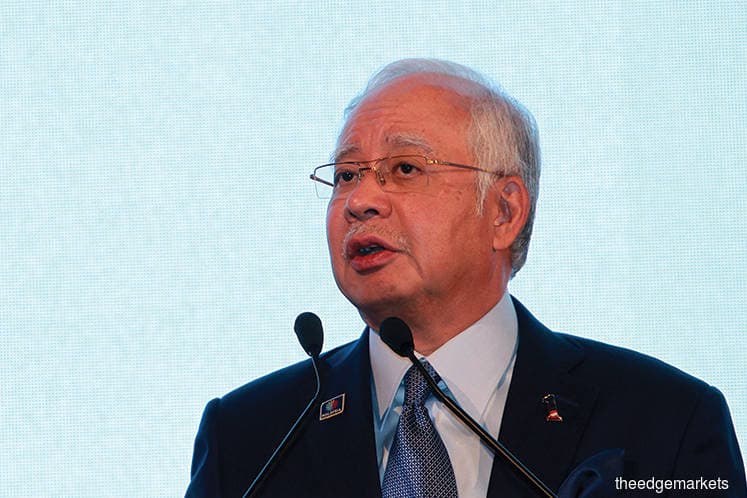
SEPANG (Nov 3): The KLIA Aeropolis Digital Free Trade Zone (DFTZ) Park at the former Low Cost Carrier Terminal (LCCT) was officially operational today, and is set to reduce cross border clearance and cargo terminal operations (CTO) time.
After attending the opening ceremony and tour to the unmanned warehouse with Alibaba Group founder and executive chairman Jack Ma, Prime Minister Datuk Seri Najib Tun Razak said the DFTZ will optimise border clearance and handling from six hours to three hours, and improve CTO from four hours to 90 minutes.
"When we shook hands on Nov 4 last year, you (Jack Ma) gave us a challenge to set up DFTZ, I took up the challenge,” Najib said. “I knew that you had your doubts and scepticism, and I want to show you that Malaysia can do it. And one year later today, DFTZ is running. This is wonderful because we have exceeded all expectations and delivered."
"We want to promote SME. When we started, we targeted 1,500 companies. SME Corp said it was too high. Today, we have 1,972 companies seeking to use DFTZ for trading," he added.
Najib also said the establishment of DFTZ will create over 60,000 high paid jobs and support US$65 billion worth of goods moving through the free trade zone by 2025.
Ma, in his speech, said the DFTZ is simplifying eCommerce by bringing together government agencies, eMarketplaces, logistics and payment providers, all on one platform.
"Back in March, I said Malaysia is set to make it easier for SMEs to do cross border trade. This is the primary purpose of DFTZ. Together with Alibaba as a catalytic partner in DFTZ, I am confident that Malaysian SMEs can count on their eCommerce expertise to grow across the region," Najib added.
Ma also said Alibaba's electronic world trade platform (eWTP) initiative's goal is to build an inclusive and innovative global trading platform for SMEs, young people and consumers.
"We are proud to share this vision with DFTZ. I believe that this is the beginning of a long-standing strategic partnership between the two nations. Alibaba Group definitely plans to stay and strengthen our presence here. I would like to take this opportunity to congratulate the Malaysian government and all parties in turning DFTZ into a reality," he said.
The DFTZ consists of two components, namely eFulfillment Hub and eServices Platform.
The eFulfillment Hub is expected to double the growth in Malaysia's air cargo volume from the current level of about 700,000 tonnes a year to 1.3 million tonnes a year within 10 years.
The hub serves as a cluster of facilities for custom clearance, warehousing and logistics to facilitate and accelerate growth of trans-shipment air cargo volumes. It will be developed over two phases, whereby the first phase will involve refurbishment and operation by Pos Malaysia Bhd to serve Lazada and other eCommerce players.
The facility is currently in operation and it will be expanded to support logistics operators as well.
Pos Malaysia has invested RM60 million to upgrade and renovate the facility, including ICT infrastructure, CCTV and security services, operational equipment and other facilities.
eFulfillment Hub's second phase will be a greenfield development over a 60-acre plot of land, jointly developed by Malaysia Airports Holdings Bhd and Alibaba's logistics arm Cainiao Network.
The second phase is slated to be operational by 2020.
As for the eServices Platform component, it is meant to manage cross-border trade efficiently and leverage on the seamless services, through an integrated trade facilitation platform that provides access to eCommerce ecosystem players, including financing, last mile fulfillment, insurance and digital marketing.
Therefore, Ma said eServices Platform will offer SMEs with market access to exporters and importers, in order to reach global customers